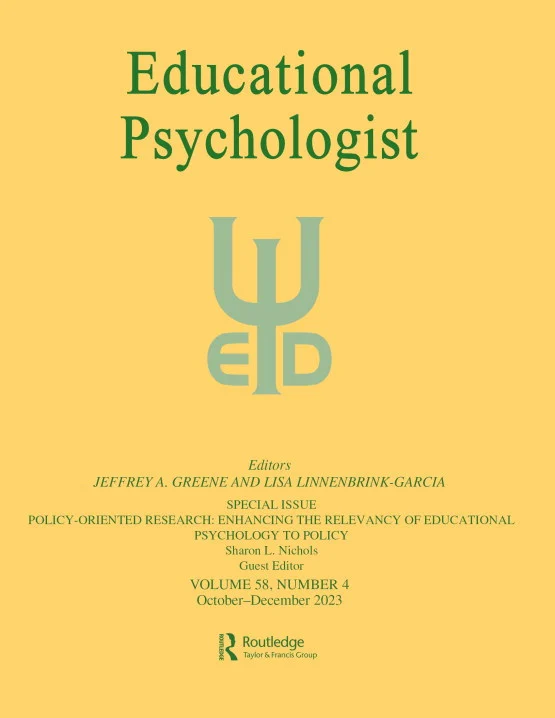走向反馈研究的范式转变:受自我调节学习理论影响的五个进一步步骤
IF 11.4
1区 心理学
Q1 EDUCATION & EDUCATIONAL RESEARCH
引用次数: 2
摘要
《评价反馈的效果和有效性的心理学视角》特刊的文章表明,反馈是教育的关键因素。尽管在这方面已经有了大量的研究,但继续推进这一领域势在必行。我的目标是概述五个步骤,以巩固反馈领域可能已经经历的潜在范式转变,同时结合从本期特刊中的文章中收集到的见解。首先,有必要开发新的模型,以彻底探索和操作反馈现象的复杂性。其次,必须将反馈概念化为一个动态过程,并收集直接调查这一过程的数据。第三,利用自我调节学习领域的见解将是有利的,该领域在推进适用于反馈研究的测量方法方面取得了重大进展。第四,采用多模态方法可以丰富我们对反馈过程的多面性的理解。最后,将反馈代理置于反馈过程的核心,特别注意个体差异,这是至关重要的。本文章由计算机程序翻译,如有差异,请以英文原文为准。
Toward a paradigm shift in feedback research: Five further steps influenced by self-regulated learning theory
Abstract As the articles in this special issue on “Psychological Perspectives on the Effects and Effectiveness of Assessment Feedback” have shown, feedback is a key factor in education. Although there exists a substantial body of research on the topic, it is imperative to continue advancing the field. My aim is to outline five steps to solidify the potential paradigm shift that the feedback field may already be experiencing, while incorporating the insights gleaned from the articles within this special issue. Firstly, there is a need to develop new models that thoroughly explore and operationalize the intricacies of the feedback phenomenon. Secondly, it is essential to conceptualize feedback as a dynamic process and collect data that directly investigates this process. Thirdly, it would be advantageous to leverage insights from the self-regulated learning field, which has made significant strides in advancing measurement methods applicable to feedback research. Fourthly, employing multimodal methods can enrich our comprehension of the multifaceted nature of the feedback process. Lastly, placing the feedback agent at the core of the feedback process, with particular attention to individual differences, is of utmost importance.
求助全文
通过发布文献求助,成功后即可免费获取论文全文。
去求助
来源期刊

Educational Psychologist
Multiple-
CiteScore
19.10
自引率
3.40%
发文量
16
期刊介绍:
The Educational Psychologist is a scholarly journal dedicated to exploring the psychology of learning and instruction. Articles in this journal encompass a diverse range of perspectives, from examining psychological mechanisms to exploring social and societal phenomena related to learning and instruction. The journal publishes theoretical and conceptual articles, as well as reviews and meta-analyses, that significantly contribute to theory or advance the methods used to explore educational psychology. Emphasizing innovation and advancing understanding, the journal does not publish articles solely reporting the methods and results of empirical studies; instead, all submissions, including reviews and meta-analyses, must offer clear implications for advancing theory. In addition to regular articles, the journal features special issues that delve into important themes in educational psychology, along with focal articles accompanied by peer commentary.
 求助内容:
求助内容: 应助结果提醒方式:
应助结果提醒方式:


